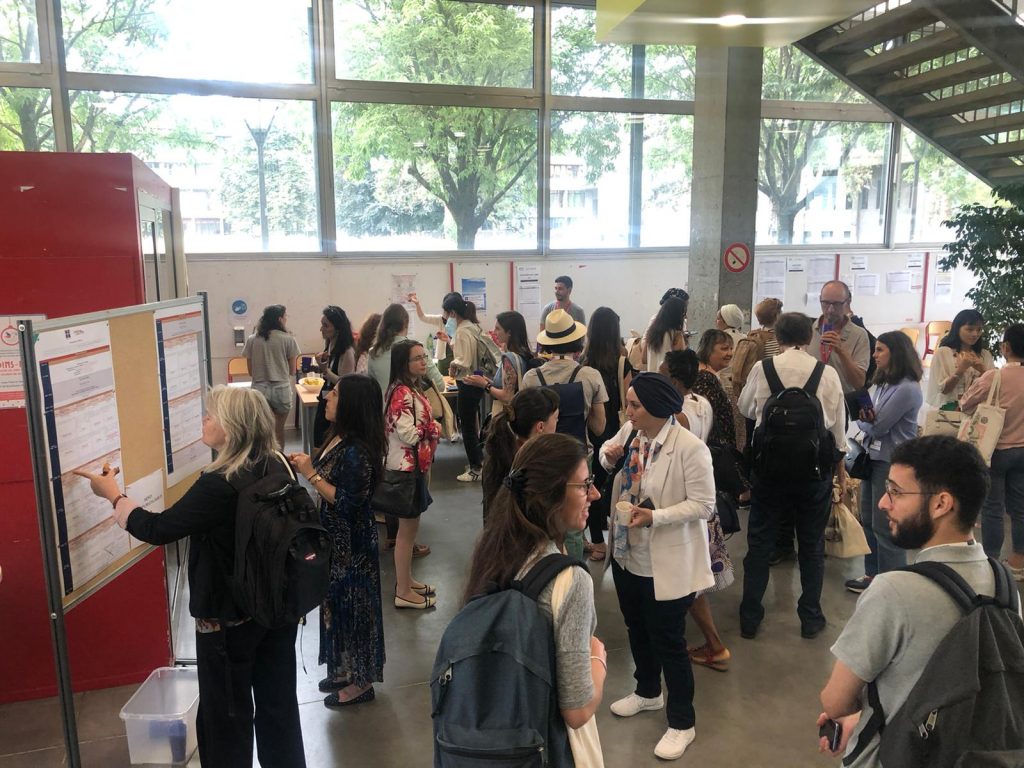
I am currently researching heritage language maintenance through family language investigation: a comparative study of four multilingual families in Manchester. This study focuses on how the experience of multilinguals portrays their patterns, practices and instances of linguistic behaviour that feeds into their family language policies. Individuals, families and broader communities are a primary means of contextualizing those concepts (Kheirkhah, 2016).
By looking at the experiences of four multilingual families, I am examining how multilingualism is present and enacted in their linguistic practices. In this respect, the concept of Family Language Policy (FLP) is useful in studying families’ experiences of multilingualism and this will be backed up by using both audio-recordings of spoken interactions in the family and semi-structured interviews: firstly, to know more about the linguistic experiences of the four families I am investigating, and secondly, to understand why they happen and thirdly how their linguistic diversity links to their identity positioning.
Hence, investigating the linguistic practices of the multilinguals will help determine whether minority/heritage language maintenance is something my families consider as important or not. Also, their ideologies and beliefs will assist me in providing an insight as to why heritage language maintenance is present or not, and what the factors are which determine this. Ultimately, the project will enrich the literature about FLP and inform wider broader policy decision-making for minoritized bi/multilinguals and education.

As I write this blog, I am reaching my data analysis stages where I have disseminated the findings which were quite rich in content. The four families have displayed similar and different linguistic, cultural patterns that have unearthed some of their most important views on FLP, HL maintenance/loss and transmission, parents’ and children’s agency and predominantly religion.
Those linguistic patterns observed in each family answer my very first research question of the linguistic practices observed in the four multilingual families investigated and will be recapped in the following.
The Algerian families have demonstrated stronger motivation, consistent efforts and powerful willingness to transmit Dareeja to their children. The mothers were the main promoters of HL transmission as they spent more time with their children than the fathers did.
The British-Pakistani parents, on the other hand, have held rather negative attitudes towards their HL and that has directly affected their willingness to make consistent efforts of teaching their children Punjabi or Urdu. Despite the fathers’ competence in both varieties, they did not deem it as important for their children to learn their HL which eventually led to HL loss.
After discussing what my study is about and some of the most prominent findings, I would like to share a personal opinion or experience about my journey as a researcher, what were the challenges and benefits of the latter and how Covid impacted all of that.
Choosing to pursue a PhD was not a clearcut decision I made after careful examination of pros and cons but rather a decision I made based on a lifelong discipline I harboured and nurtured throughout the years. I knew from the very beginning that setbacks were bound to be in my journey which proved to be the case given the pandemic and how it affected all fields and especially the academic one.

Conferences were a primary motivation for me because they were a means to meet fellow academics, share similar experiences of what it’s like to pursue a PhD and exchange ideas and thoughts. However, in person conferences were all switched to online, and I did not see or experience the same joy or the rush I did when I attended physical conferences.
Thankfully, recently I was able to attend two conferences in person (Grenoble and Manchester) and it felt much more real and had a positive impact on me. I got to meet different academics in different fields, exchange ideas and talk about our challenges, attitudes and views about PhD, academia, and life in general which was quite refreshing.

I fully believe that attending research activities (conferences, workshops, symposiums, talks…) are extremely important and give academics a push and a motivation to keep going, gain new insights and perspectives and meet academic figures and make valuable connections that will come in handy in the future.
I was lucky enough to be granted funding from the Graduate research degrees and I am deeply grateful as it gave me the opportunity to experience what an international conference looks and feels like as I met people from different fields, made connections and learnt a lot about methodology which is quite useful especially in my current year (data analysis). Hence, I would like to encourage fellow academics to attend conferences, apply for funding and get out of their comfort zones because the amount of knowledge and life changing experiences in the world of academia especially are absolutely worth it.
My supervisors were an immense support that have guided me all throughout my journey and still do. Thus, I would like to thank each one of them from the bottom of my heart.


